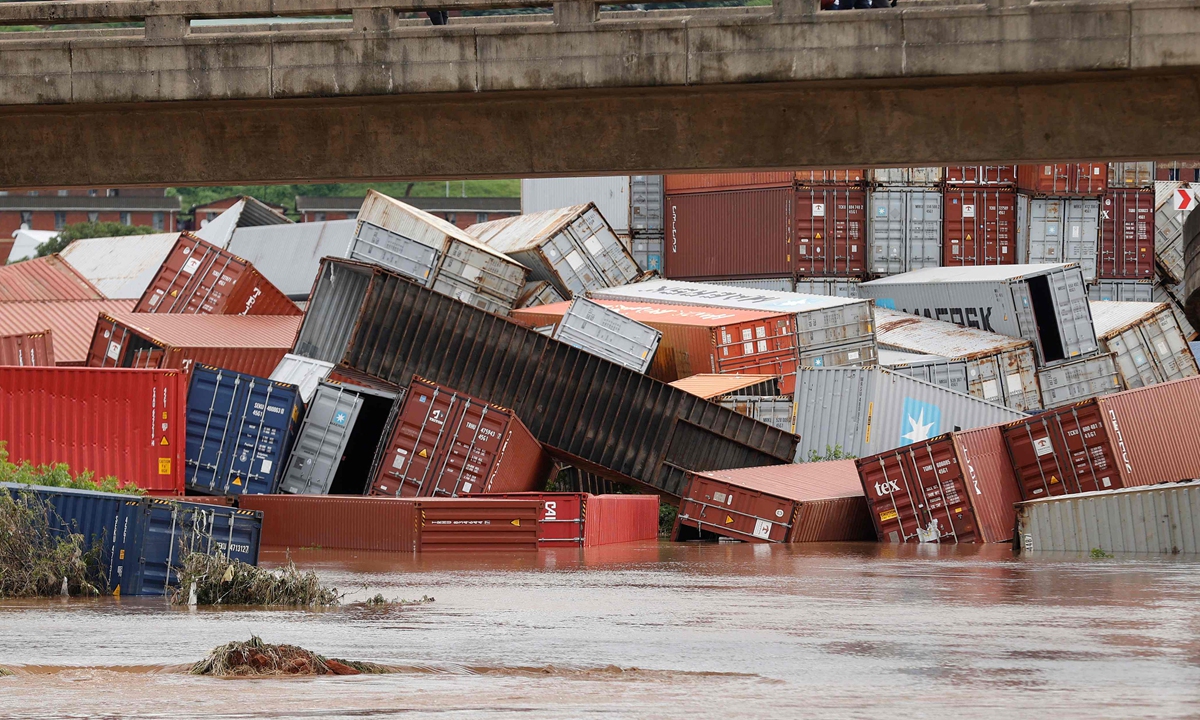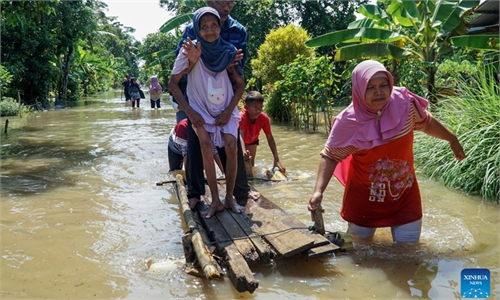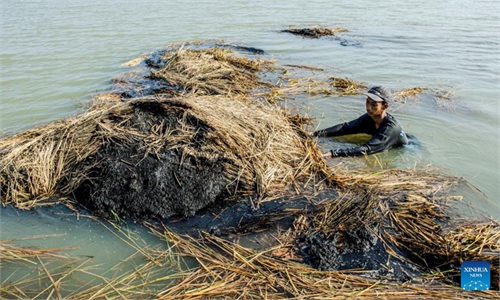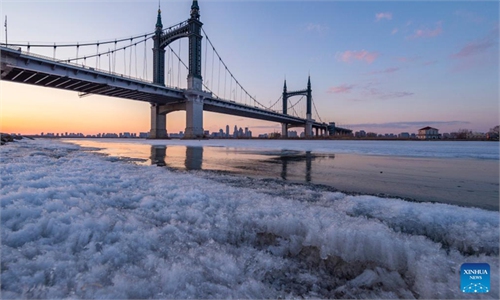Floods hit South Africa’s Durban
Death toll rises to 306 as heaviest rains seen in 60 years

Residents of Umlazi township stand over a bridge and watch containers that fell over at a container storage facility following heavy rains and winds in Durban, on April 12, 2022. At least 45 people were killed after heavy rain in South Africa's eastern coastal province of KwaZulu-Natal, officials said. Photo: Xinhua
The death toll from devastating floods in and around the South African port city of Durban has risen to 306, the government said Wednesday, after roads and hillsides were washed away as homes collapsed.The heaviest rains in 60 years pummeled Durban's municipality, known as eThekwini. According to an AFP tally, the storm is the deadliest on record in South Africa.
"By the evening of 13th of April, we have been informed that the death toll from the floods disaster in KZN [KwaZulu-Natal] Province has risen to 306 people," Nonala Ndlovu, spokeswoman for the provincial disaster management department said.
Her office said the death toll is "one of the darkest moments in the history" of KZN.
Earlier Wednesday, Ndlovu had put the toll at 259.
President Cyril Ramaphosa, has described the floods as a "catastrophe" and a "calamity."
"Bridges have collapsed. Roads have collapsed. People have died," he said, adding that one family lost 10 members.
At least 248 schools have been damaged.
"This is a catastrophe of enormous proportions," he said, addressing a local community after inspecting the damage from the floods.
The search for missing persons is still going on, said Ramaphosa, promising to "spare nothing" in dealing with the disaster and offering assistance to the affected.
"This disaster is part of climate change. We no longer can postpone what we need to do... to deal with climate change."
"It is here, and our disaster management capability needs to be at a higher level," said the president.
The United Methodist Church in the township of Clermont was reduced to a pile of rubble. Four children from a local family died when a wall collapsed on them.
Other homes hung precariously to the hillside, miraculously still intact after much of the ground underneath them washed away in mudslides.
Nokuthula Ntantiso's house survived, but many others in her Umlazi township did not.
"It's scary, because even last night I didn't sleep... because I was wondering if even this [home] that I'm sleeping in can collapse at any time," the 31-year-old call center operator said.
She tried to go back to work on Wednesday, but turned back at a collapsed bridge.
Meanwhile a dozen crocodiles that went missing from breeding ponds after the heavy rains swamped a crocodile farm near Durban have reportedly been recaptured.
The storm forced sub-Saharan Africa's most important port to halt operations, as a main access road suffered heavy damage.
Shipping containers were tossed about, washed into mountains of metal that rose taller than the elevated highways. Sections of other roads were washed away, leaving behind gashes in the earth bigger than large trucks.
AFP



